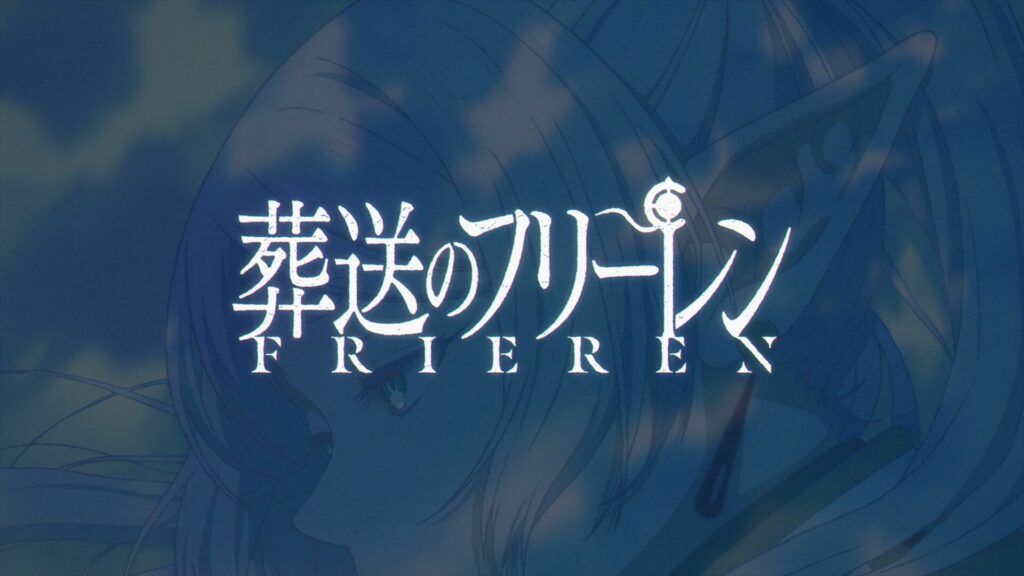
🗣️ Quote #6 – The Strange Power of Defensive Magic
防御魔法の練習ばかりですね。
生存率に直結するからね。
確かに、防御魔法一つでほとんどの攻撃魔法が防げますからね。
強力すぎて不思議です。
We’ve been practicing nothing but defense for ages.Yes, to improve your odds of survival.I guess that makes sense.Being able to cast one defensive spell can protect you from most every offensive spell.It’s eerie how powerful they are.
ぼうぎょ まほう の れんしゅう ばかり です ね。
せいぞんりつ に ちょっけつ する から ね。
たしかに、 ぼうぎょ まほう ひとつ で ほとんど の こうげき まほう が ふせげます から ね。
きょうりょく すぎて ふしぎ です。
bougyo mahou no renshuu bakari desu ne.
seizonritsu ni chokketsu suru kara ne.
tashika ni, bougyo mahou hitotsu de hotondo no kougeki mahou ga fusegemasu kara ne.
kyouryoku sugite fushigi desu.
🌟 Waku Waku Word Dive
ぼうぎょまほう(防御魔法) /bou.gyo.ma.hou/ – Noun
Meaning: Defensive magic; spells used to block or protect against attacks
れんしゅう(練習) /ren.shuu/ – Noun
Meaning: Practice; repeated training or drilling
せいぞんりつ(生存率) /sei.zon.ritsu/ – Noun
Meaning: Survival rate; chance of staying alive
ちょっけつ(直結) /chok.ketsu/ – Noun/Verb
Meaning: Directly linked or connected
ふせぐ(防ぐ) /fu.se.gu/ – Verb
Meaning: To defend or block; to prevent
ふしぎ(不思議) /fu.shi.gi/ – Noun/Adjective
Meaning: Strange; mysterious; something hard to believe
📘 Mini Grammar Boost
〜ばかりですね
Ex: 練習ばかりですね
Tip: “Nothing but…” — emphasizes repetition or exclusivity
〜に直結する
Ex: 生存率に直結する
Tip: “Directly affects” — often used for serious or measurable impact
〜一つで〜が〜できる
Ex: 魔法一つで防げます
Tip: A natural way to express that one thing alone can accomplish something
〜すぎて〜
Ex: 強力すぎて不思議
Tip: “So [X] that it’s [Y]” — shows cause and surprising result
🔀 Slash Reading – Japanese / English
防御魔法(ぼうぎょまほう)の 練習(れんしゅう)ばかり ですね。
We’ve been practicing nothing but defense for ages.
生存率(せいぞんりつ)に 直結(ちょっけつ)する から ね。
Yes, to improve your odds of survival.
確(たし)かに、 防御魔法(ぼうぎょまほう)一(ひと)つで ほとんどの 攻撃魔法(こうげきまほう)が 防(ふせ)げます から ね。
I guess that makes sense. Being able to cast one defensive spell can protect you from most every offensive spell.
強力(きょうりょく)すぎて 不思議(ふしぎ)です。
It’s eerie how powerful they are.
🗣️ Quote #7 – Zoltraak: A Spell That Shattered Defenses
人類の防御魔法は、もちろん装備の魔法耐性さえも貫通し、人体を直接破壊する魔法だ。
この地方では、冒険者の4割、魔法使いに至っては7割が、ゾルトラークによって殺されたと言われている。
It can pierce not only defensive spells, but the most durable magic-resistant armors.It directly targets and destroys the body.It is said that in this region, 40 percent of their adventurers and 70 percent of their mages were killed by Zoltraak.
じんるい の ぼうぎょ まほう は、 もちろん そうび の まほう たいせい さえ も かんつう し、 じんたい を ちょくせつ はかい する まほう だ。
この ちほう では、 ぼうけんしゃ の よんわり、 まほうつかい に いたって は ななわり が、 ゾルトラーク に よって ころされた と いわれて いる。
jinrui no bougyo mahou wa, mochiron soubi no mahou taisei sae mo kantsuu shi, jintai o chokusetsu hakai suru mahou da.
kono chihou de wa, boukensha no yon-wari, mahoutsukai ni itatte wa nana-wari ga, Zorutoraaku ni yotte korosareta to iwarete iru.
🌟 Waku Waku Word Dive
かんつう(貫通) /kan.tsuu/ – Verb
Meaning: To pierce through; to penetrate completely
そうび(装備) /sou.bi/ – Noun
Meaning: Equipment; gear, especially armor or clothing in battle
たいせい(耐性) /tai.sei/ – Noun
Meaning: Resistance (to magic, disease, etc.)
ちょくせつ(直接) /cho.ku.se.tsuu/ – Adverb
Meaning: Directly; with no intermediary
はかい(破壊) /ha.ka.i/ – Noun/Verb
Meaning: Destruction; the act of breaking or ruining something
いたる(至る) /i.ta.ru/ – Verb
Meaning: To reach or extend to; used in “に至っては” for emphasis
📘 Mini Grammar Boost
〜さえも〜し
Ex: 魔法耐性さえも貫通し
Tip: “Even [X] can be overcome” — shows extremity or exception
〜を直接〜する
Ex: 人体を直接破壊する
Tip: Expresses direct effect—“to destroy the body directly”
〜に至っては
Ex: 魔法使いに至っては
Tip: Adds emphasis—“in the case of mages in particular…”
〜と言われている
Ex: 殺されたと言われている
Tip: Passive form for reported facts—“it is said that…”
🔀 Slash Reading – Japanese / English
人類(じんるい)の 防御魔法(ぼうぎょまほう)は、 もちろん 装備(そうび)の 魔法耐性(まほうたいせい)さえも 貫通(かんつう)し、 人体(じんたい)を 直接(ちょくせつ) 破壊(はかい)する 魔法(まほう)だ。
It can pierce not only defensive spells, but the most durable magic-resistant armors. It directly targets and destroys the body.
この 地方(ちほう)では、 冒険者(ぼうけんしゃ)の 四割(よんわり)、 魔法使(まほうつか)い に 至(いた)っては 七割(ななわり)が、 ゾルトラーク に よって 殺(ころ)された と 言(い)われて いる。
It is said that in this region, 40 percent of their adventurers and 70 percent of their mages were killed by Zoltraak.
🗣️ Quote #8 – When Magic Grew Stronger Than Death
大陸中の魔法使いが、ゾルトラークをこぞって研究・解析した。
わずか数年で、ゾルトラークは人類の魔法体系に組み込まれた。
新しい防御術式による強力な防御魔法が開発された。
装備による魔法耐性も格段に向上した。
ゾルトラークは人を殺す魔法ではなくなった。
Mages across the land studied and analyzed Zoltraak until they had a complete understanding of it.In just a few years, your work was incorporated into humankind’s magic system.New defensive spells with power like none before were developed in response.The magic resistance offered by equipment has improved significantly as well.These advances have made Zoltraak a death sentence no longer.
たいりくじゅう の まほうつかい が、 ゾルトラーク を こぞって けんきゅう・かいせき した。
わずか すうねん で、 ゾルトラーク は じんるい の まほうたいけい に くみこまれた。
あたらしい ぼうぎょ じゅつしき に よる きょうりょく な ぼうぎょ まほう が かいはつ された。
そうび に よる まほうたいせい も かくだん に こうじょう した。
ゾルトラーク は ひと を ころす まほう では なくなった。
tairikujuu no mahoutsukai ga, Zorutoraaku o kozotte kenkyuu / kaiseki shita.
wazuka suunen de, Zorutoraaku wa jinrui no mahou taikei ni kumikomareta.
atarashii bougyo jutsushiki ni yoru kyouryoku na bougyo mahou ga kaihatsu sareta.
soubi ni yoru mahou taisei mo kakudan ni koujou shita.
Zorutoraaku wa hito o korosu mahou de wa nakunatta.
🌟 Waku Waku Word Dive
けんきゅう(研究) /ken.kyuu/ – Noun/Verb
Meaning: Research; in-depth study for new understanding
かいせき(解析) /kai.se.ki/ – Noun
Meaning: Analysis; breaking down to understand mechanisms
たいけい(体系) /tai.kei/ – Noun
Meaning: System; organized structure (like a body of knowledge)
くみこむ(組み込む) /ku.mi.ko.mu/ – Verb
Meaning: To incorporate; to embed into a larger system
こうじょう(向上) /kou.jou/ – Noun/Verb
Meaning: Improvement; raising the level of performance
なくなる(無くなる) /na.ku.na.ru/ – Verb
Meaning: To disappear or cease to exist (in this case: “no longer be”)
📘 Mini Grammar Boost
〜をこぞって〜した
Ex: ゾルトラークをこぞって研究・解析した
Tip: “All together, eagerly” — often used to show widespread effort
〜に組み込まれた
Ex: 魔法体系に組み込まれた
Tip: Passive form — “was incorporated into”
〜による〜が〜された
Ex: 新しい防御術式による魔法が開発された
Tip: “Something was done by means of…” — formal explanatory tone
〜ではなくなった
Ex: 殺す魔法ではなくなった
Tip: “No longer [X]” — strong way to show a change or transformation
🔀 Slash Reading – Japanese / English
大陸中(たいりくじゅう)の 魔法使(まほうつか)いが、 ゾルトラーク を こぞって 研究(けんきゅう)・解析(かいせき)した。
Mages across the land studied and analyzed Zoltraak until they had a complete understanding of it.
わずか 数年(すうねん)で、 ゾルトラーク は 人類(じんるい)の 魔法体系(まほうたいけい)に 組(く)み込(こ)まれた。
In just a few years, your work was incorporated into humankind’s magic system.
新(あたら)しい 防御術式(ぼうぎょじゅつしき)による 強力(きょうりょく)な 防御魔法(ぼうぎょまほう)が 開発(かいはつ)された。
New defensive spells with power like none before were developed in response.
装備(そうび)による 魔法耐性(まほうたいせい)も 格段(かくだん)に 向上(こうじょう)した。
The magic resistance offered by equipment has improved significantly as well.
ゾルトラーク は 人(ひと)を 殺(ころ)す 魔法(まほう)では なくなった。
These advances have made Zoltraak a death sentence no longer.
🗣️ Quote #9 – Knowing How to Respond
防御の方の弱点に気づかれた。
フェルン、対処できるよね?
はい、練習でもう見ましたから。
He figured out the weakness of defensive magic.Fern… you know what to do, don’t you?Yes.I remember from our practices.
ぼうぎょ の ほう の じゃくてん に きづかれた。
ふぇるん、 たいしょ できる よ ね?
はい、 れんしゅう で もう みました から。
bougyo no hou no jakuten ni kidzukareta.
Ferun, taisho dekiru yo ne?
hai, renshuu de mou mimashita kara.
🌟 Waku Waku Word Dive
じゃくてん(弱点) /ja.ku.ten/ – Noun
Meaning: Weak point; vulnerability
きづく(気づく) /ki.zu.ku/ – Verb
Meaning: To notice; to realize
たいしょ(対処) /tai.sho/ – Noun/Verb
Meaning: Handling; responding to a situation
れんしゅう(練習) /ren.shuu/ – Noun
Meaning: Practice; rehearsal
みる(見る) /mi.ru/ – Verb
Meaning: To see; to observe
もう /mou/ – Adverb
Meaning: Already; previously
📘 Mini Grammar Boost
〜に気づかれる
Ex: 弱点に気づかれた
Tip: Passive form — “was noticed” (by someone else)
〜できるよね?
Ex: 対処できるよね?
Tip: Soft confirmation — “You can handle it, right?”
〜でもう〜た
Ex: 練習でもう見ましたから
Tip: “I already saw it during practice” — emphasizes preparedness
🔀 Slash Reading – Japanese / English
防御(ぼうぎょ)の 方(ほう)の 弱点(じゃくてん)に 気(き)づかれた。
He figured out the weakness of defensive magic.
フェルン、 対処(たいしょ)できる よ ね?
Fern… you know what to do, don’t you?
はい、 練習(れんしゅう)で もう 見(み)ました から。
Yes. I remember from our practices.
🗣️ Quote #10 – Who Believed in Whom
この村の人たちは、ヒンメルを信じていたんだ。
よくわかりませんが……。
ヒンメル様は、フリーレン様を信じていたのだと思いますよ。
どうしたのですか?
別に。
His prophecy came to pass.Himmel is who they believed in.I don’t understand exactly.But it seems to me that the person Himmel believed in all this time was you.What is it, Mistress?Nothing.
この むら の ひとたち は、 ひんめる を しんじて いた ん だ。
よく わかりません が……。
ひんめるさま は、 ふりーれんさま を しんじて いた の だ と おもいます よ。
どう した の です か?
べつ に。
kono mura no hitotachi wa, Hinmeru o shinjite ita n da.
yoku wakarimasen ga……
Hinmeru-sama wa, Furīren-sama o shinjite ita no da to omoimasu yo.
dou shita no desu ka?
betsu ni.
🌟 Waku Waku Word Dive
むら(村) /mu.ra/ – Noun
Meaning: Village; small rural community
しんじる(信じる) /shin.ji.ru/ – Verb
Meaning: To believe in; to trust
わかる(分かる) /wa.ka.ru/ – Verb
Meaning: To understand; to grasp
おもう(思う) /o.mo.u/ – Verb
Meaning: To think; to feel
どうしたのですか /dou.shi.ta.no.de.su.ka/ – Phrase
Meaning: What’s the matter? (polite)
べつに(別に) /be.tsu.ni/ – Phrase
Meaning: Nothing in particular; no reason
📘 Mini Grammar Boost
〜を信じていたんだ
Ex: ヒンメルを信じていたんだ
Tip: Past continuous + explanatory tone — “They had believed in…”
〜のだと思います
Ex: 信じていたのだと思いますよ
Tip: Polite form — “I think that… probably”
どうしたのですか?
Tip: A gentle, respectful way to ask “What’s wrong?”
〜別に
Ex: 別に
Tip: Casual, closed-off reply — “Nothing (really)” or “It’s nothing”
🔀 Slash Reading – Japanese / English
この 村(むら)の 人(ひと)たちは、 ヒンメル を 信(しん)じて いた んだ。
Himmel is who they believed in.
よく 分(わ)かりません が……。
I don’t understand exactly.
ヒンメル様(さま)は、 フリーレン様(さま)を 信(しん)じて いた のだ と 思(おも)います よ。
But it seems to me that the person Himmel believed in all this time was you.
どう した の です か?
What is it, Mistress?
別(べつ)に。
Nothing.
✨ Summary – A Journey Made of Memories and Effort
フリーレンは、ヒンメルたちとの 冒険(ぼうけん)の 痕跡(こんせき)を たどろうと していました。
Frieren wanted to retrace the adventures she had shared with Himmel and the others.
その 思(おも)いは、少(すこ)し ずつ 彼女(かのじょ)を 変(か)えていきます。
That wish is slowly changing her.
フェルンも また、 自分(じぶん)の 気持(きも)ちを 少(すこ)し ずつ 言葉(ことば)に できるように なってきました。
Fern, too, has begun to express her feelings little by little.
おたがいに「知(し)ろうとする」ことで、二人(ふたり)の 関係(かんけい)は 少(すこ)し ずつ 深(ふか)まっていきます。
As they try to understand one another, their bond continues to deepen.
その 成長(せいちょう)こそが、旅(たび)の 本当(ほんとう)の 宝物(たからもの)なのかもしれません。
Perhaps that growth is the true treasure of their journey.
🌟 Waku Waku Word Dive
こんせき(痕跡) /kon.se.ki/ – Noun
Meaning: Trace; sign; remaining clue of something past
しろうとする(知ろうとする) /shi.ro.u.to.su.ru/ – Phrase
Meaning: To try to understand or learn about someone/something
かんけい(関係) /kan.kei/ – Noun
Meaning: Relationship; human or causal connection
せいちょう(成長) /sei.chou/ – Noun
Meaning: Growth; personal or emotional development


